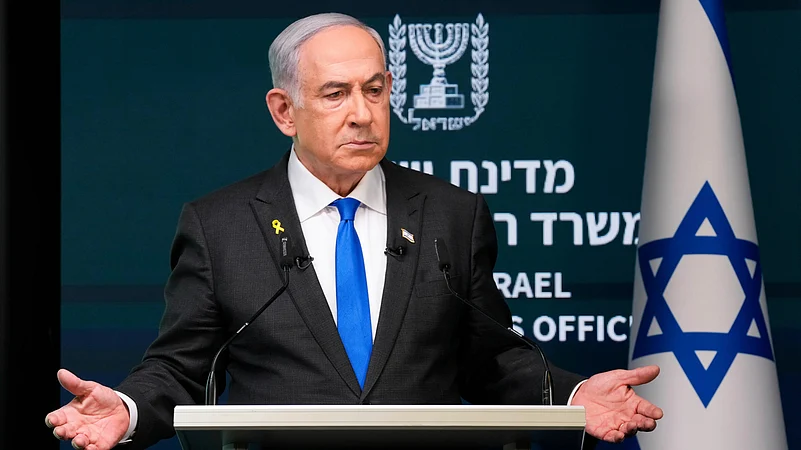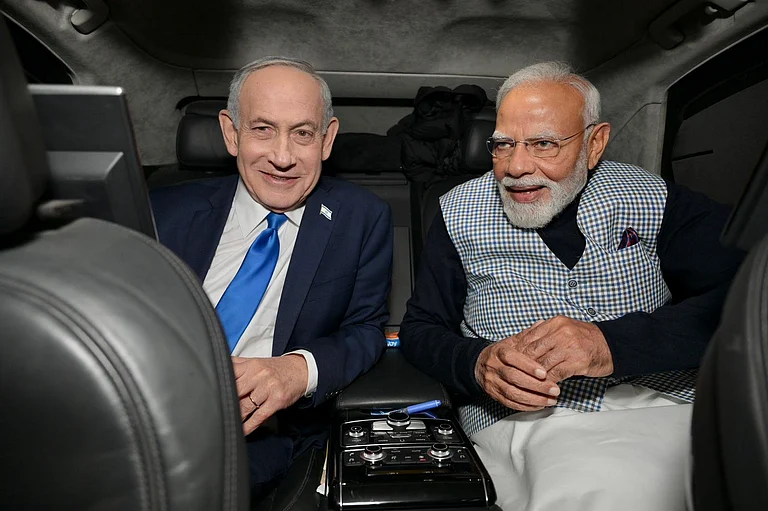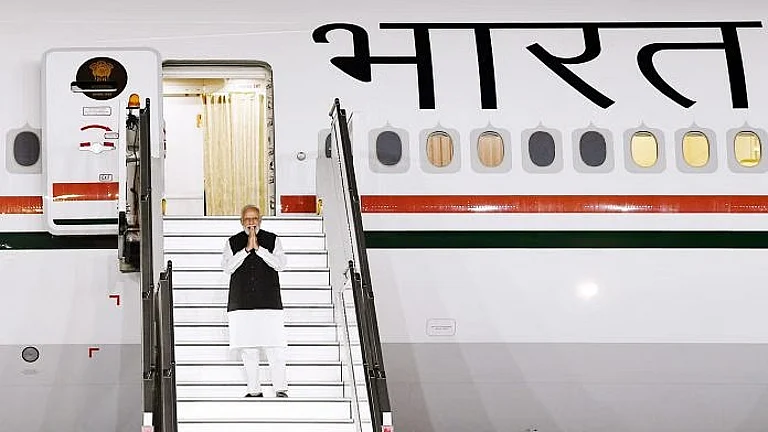
Netanyahu criticises UK's recognition of Palestine as a reward for terrorism.
Opposition leader Yair Golan attributes UK's move to Israeli government's policies.
Israeli officials express concern over international recognition of Palestine.
Israeli prime minister Benjamin Netanyahu has condemned the United Kingdom’s decision to recognise Palestine, calling it “an absurd prize for terrorism”.
In remarks to ministers released by his office, Netanyahu said Israel would have “to fight both in the UN and in all the other fronts against the slanderous propaganda aimed at us, and against the calls to create a Palestinian state that will endanger our existence and constitute an absurd prize for terrorism,” The Guardian reported.
Israel’s foreign ministry also criticised the move. In a post on X, it said recognition of Palestine amounted to “nothing but a reward for jihadist Hamas”. The ministry added, “Hamas leaders themselves openly admit: this recognition is a direct outcome, the ‘fruit’ for the October 7 massacre. Don’t let Jihadist ideology dictate your policy.”
According to The Guardian, Israeli officials have advanced similar arguments in recent weeks while attempting to discourage momentum towards recognition in the UK, France, Canada, Portugal and other countries.
Yaakov Amidror, a former national security adviser to Netanyahu, said Hamas could now claim that without its 2023 attack, in which about 1,200 people were killed, the UK and others would not have recognised Palestine. “It will be understood as a reward to them, and Starmer has lost any leverage that he had … and [a Palestinian state] is not going to happen anyway,” said Amidror, who is also affiliated with the conservative Jerusalem Institute for Strategy and Security and the Jewish Institute for National Security of America in Washington.
He added that “Israel is determined to destroy the terrorist organisation that is called Hamas. Some of our friends around the world have decided that Hamas should survive and Israel should leave the Gaza Strip, taking our hostages … There is a gap here that cannot be bridged with nice words.”
Meanwhile, successive opinion polls in Israel have indicated strong public support for a negotiated end to the war in Gaza. Support for Netanyahu’s coalition government, the most rightwing in Israel’s history, has faced declining support, particularly after the prime minister urged Israelis last week to accept international isolation and become a “super-Sparta”.
Tens of thousands demonstrated in Israel over the weekend, demanding a deal to secure the release of Israeli hostages still held in Gaza. A coalition representing families of the hostages said it condemned “various nations' unconditional recognition of a Palestinian state while turning a blind eye to the fact that 48 hostages remain in Hamas captivity following the October 7th massacre.”
Opposition leader Yair Golan of the Democrats party said the UK’s decision highlighted what he called a failure of Netanyahu’s policies. “This is a direct result of Netanyahu’s political recklessness: refusal to end the war and the dangerous choice of occupation and annexation,” Golan said. He added that the idea of a demilitarised Palestinian state could form part of a broader regional arrangement led by Israel to ensure its security interests.
Netanyahu is not expected to announce Israel’s formal response before his planned visit to Washington at the end of the month.
Far-right ministers within the coalition called for stronger measures. Finance minister Bezalel Smotrich and national security minister Itamar Ben-Gvir demanded annexation of the occupied West Bank. Writing on X, Smotrich said: “The days when Britain and other countries would determine our future are over … The only response to this anti-Israeli move is sovereignty over the historic homeland of the Jewish people in Judea and Samaria, and permanently removing the folly of a Palestinian state from the agenda.”
(With inputs from The Guardian)





























